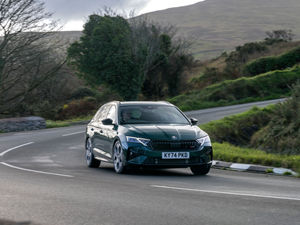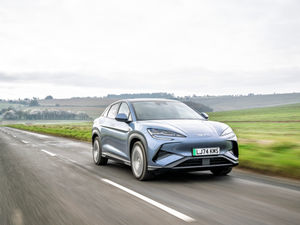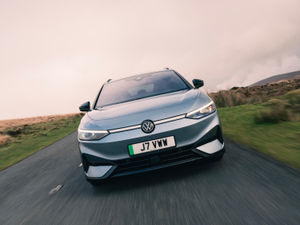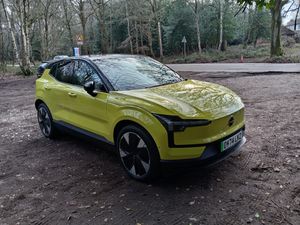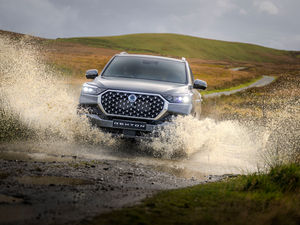First Drive: Hyundai’s i10 N Line delivers sportiness without the drawbacks
The little i10 might be small in size, but it delivers big on character. Jack Evans finds out what it’s like.
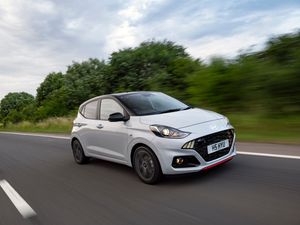
What is it?

In the modern motoring world, cars are becoming more complicated and, more often than not, a lot bigger. The frequency of compact city cars arriving on the market has become less in recent times, but for a lot of drivers, they make a lot of sense. City cars don’t cost much to run and they’re often easy to maintain and repair, too. Sometimes, however, they can feel a little lacking in character.
That’s where the i10 N Line steps in. It’s a sportier take on Hyundai’s smallest model, bringing some of the tweaks and touches that you’d get on the company’s full-fat ‘N’ performance models but with the excellent running costs of the standard i10. Is it any good though? We’ve been finding out.
What’s new?

As we’ve touched upon, the i10 is the most compact model that you can pick out of Hyundai’s range. But, like the Korean firm’s other cars, it’s still jam-packed with features to ensure it delivers great value for money while a standard five-year warranty should help alleviate any worries about reliability for the foreseeable future with this car.
Hyundai has also tweaked the way the i10 sits on the road to make it slightly more engaging to drive with a great focus on body control and handling. There are also loads of Hyundai’s latest safety systems aboard the i10, with lane-keep assist, intelligent speed limit assist and a full electronic stability system ensuring that this compact car remains as safe as can be.
What’s under the bonnet?

One area where the i10 hasn’t been changed in its switch to N Line specification is the engine. It’s a 1.0-litre turbocharged unit, which here produces one brake horsepower shy of the 100bhp marker and 175Nm of torque. While those outputs might not sound that much, they are in the realms of 1980s hot hatches – it just seems we’ve become accustomed to modern performance hatchbacks producing near-supercar levels of performance.
But the good aspect of this is efficiency. Hyundai claims 52.3mpg – and we saw well over that during our time with the car – as well as CO2 emissions of 123g/km. Here, we’ve got a five-speed manual gearbox sending power to the front wheels as well.
What’s it like to drive?

With ‘just’ 99bhp and a 0-60mph time of 10.3 seconds the i10, on paper at least, isn’t the fastest horse in the race by a long stretch. However, this is a car which thrives on being driven with some extra commitment and it’s at these times when those figures pale into the background as with its sharp handling and well-contained body control, the i10 is great fun to drive down a twisty lane.
The ride can be a little fidgety at lower speeds but, if this is a deal-breaker, then there’s still the excellent ‘standard’ i10 to opt for instead. And while we would quite like a sixth gear on the gearbox for relaxed cruising at motorway speeds, the little i10 practically bowls along the highway and feels like a far larger car than it actually is during these times. Then, when you’re stopped, the i10’s tiny dimensions make it a simple car to park and move around at slow speeds.
How does it look?

Hyundai has done a great job of pumping up the look of the i10 with its N Line parts. Sure, it’s all a little ‘go-faster’, but this car’s twin exhaust pipes, red accents and 16-inch alloy wheels do play to the i10’s dimensions and make it into quite an attractive car with good looks from all angles.
The full N Line styling kit helps to differentiate this i10 from the rest of the range, too, and while it might not have the performance to back up these looks, it makes this version a touch more characterful.
What’s it like inside?

There’s a lot packed into a small area with the i10 N Line. Naturally, there’s only so much that a car of this size can offer size-wise, but with its upright proportions it’s got more headroom to deliver than you might expect. The seats up front have a decent amount of adjustability and they’re heated, too, as is the steering wheel – a welcome feature during chilly winter mornings.
As with other Hyundai models, there are some nastier plastics to be found here and there – the ones on the door cards feel quite scratchy to the touch – but it’s all ergonomically sound and the controls are always within easy reach. One thing we found slightly irritating with the i10 was the sheer number of ‘bongs’ that occur, be that for speed limits, speed cameras or anything in between. You can turn them off, but forget to at your peril – they can quickly wind you up on the move.
What’s the spec like?

The N Line is one of the most equipment-laden models in the i10 range, so it’s a good option if you want all of the creature comforts possible. As we’ve touched on there are all manner of heated elements, but above and beyond that you’ve got a full climate control system, cruise control and a reasonably sized central screen which goes beyond many other more expensive setups in its ability to deliver Apple CarPlay or Android Auto wirelessly, rather than via a USB cable.
Rear parking sensors and a rear-view camera are two ways which make this already quite easy-to-park car even more user-friendly, too. While the i10 N Line’s price has crept up in recent years and now stands at £18,520, it still brings a lot of equipment for the money.
Verdict
There’s plenty to like about this sportier take on the i10 package. It’s fun to drive, will prove cheap to run and has loads of equipment. It’s more practical than you might expect a car of this size to be, too, and its compact dimensions mean that those who are pressed for room – or are routinely parking on the street – get it into the teeniest of spaces.
At just over £18,500, it might be more expensive than before but still undercuts many rivals. While the i10 won’t be a great fit for drivers after something spacious and with tip-top refinement, this N Line’s combination of character and efficiency will be a winning blend for many would-be buyers.

